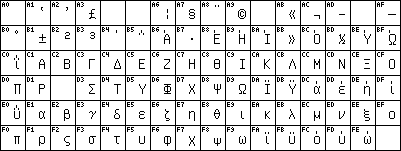

Representation in the ISO Technical Committees 176 and 207 which are concerned with the ISO 9000 and ISO 14000 standards respectively.Įach member body who has an interest in the work of a committee is entitled to be a member of that committee. The ANSI ASC Z-1/ASQ Standards Group coordinates the United States The American National Standards Institute (ANSI) is the United States representative to ISO. Is headed by a Secretariat from one of the member organizations. The bulk of the work of ISO is done by the 2700 technical committees, subcommittees and working groups. ISO is a voluntary organization whose members are recognized standard authorities, each one representing one country. (The relation to standards is that if two objects meet the same standard, they should be equal.) This nameĮliminates any confusion that could result from the translation of "International Organization For Standardization" into different languages which would lead to different acronyms. The name, "ISO" is not an acronym but was derived from the Greek word "isos" meaning "equal". In 1942 during the second World War but was re-organized under the current name, ISO, in 1946.Įven the name of the organization is standardized. This organization focused heavily on mechanical engineering. The organization which today is known as ISO began in 1926 as the International Federation of the National Standardizing Associations (ISA). Standards with the exception of electrical and electronic engineering standards covered by the International Electrotechnical Commission (IEC), telecommunication standards covered by the International Telegraph Union (ITU) and information technology covĮred by JTC 1 (a joint committee between ISO and IEC). Standards facilitate trade through enhanced product quality and reliability, greater interoperability and compatibility, greater ease of maintenance and reduced costs.

Standards provide clear identifiable references that are recognized internationallyĪnd encourage fair competition in free-market economies. Standards are important in international trade because incongruent standards can be barriers to trade, giving some organizations advantages in certain areas of the world.


 0 kommentar(er)
0 kommentar(er)
